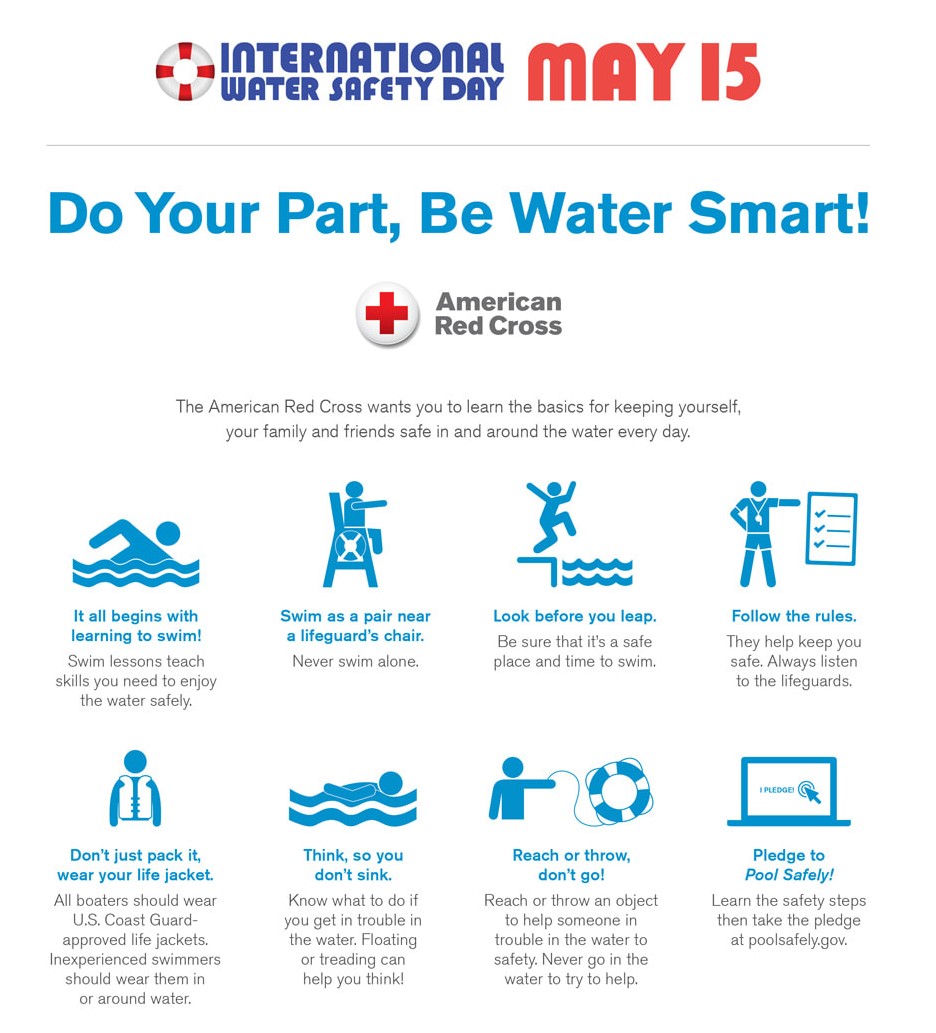Do your part, Be Water Smart. As summer months are approaching, the American Red Cross urges families to take steps to ensure water safety by becoming “water smart.” With more families heading to pools, lakes, and parks for fun-filled outings, the Red Cross is emphasizing the importance of formal water safety and swim lessons, especially for young children. Research shows that such lessons can reduce the risk of drowning by 88% for children ages 1 to 4.
“Before heading out for poolside fun or trips to the beach, it’s essential for families to learn and review critical water safety skills,” said Spencer Stelljes, Sales Director for Red Cross Training Services. “Understanding these fundamental water safety practices not only enhances enjoyment but also plays a key role in saving lives.”
Each year, over 2.5 million people learn to swim through Red Cross lifesaving aquatic programs. These programs incorporate up-to-date, science-based curricula and industry best practices to ensure families and individuals stay safe while enjoying water activities. Thanks to these efforts, the Red Cross has been instrumental in reducing accidental drownings by nearly 90% nationwide over the past century.
“Preventing unsupervised access to water, maintaining constant adult supervision, and ensuring that everyone knows how to swim are crucial layers of protection to help prevent drowning,” Stelljes added.
To help families stay safe, the Red Cross offers the following essential water safety tips:
No One Should Swim Alone – This rule applies to both children and adults. Never leave a child unattended near water, and don’t trust another child to watch over young swimmers.
Designate a Water Watcher – It’s important to always have a designated adult who will keep a close eye on children and less-experienced swimmers. A new adult should take over the role before the previous one becomes distracted.
Proper Life Jacket Use – Young children or weaker swimmers should wear a properly fitted, U.S. Coast Guard-approved life jacket whenever near water. However, life jackets should never be relied upon as the sole safety measure.
Reach or Throw, Don’t Go! – In an emergency, it’s critical to stay safe while helping others. Reach or throw an object to the person in trouble, but avoid jumping in the water yourself, as it could put you in danger of drowning.
“We encourage families to educate themselves on safe water habits, learn to swim, and be prepared for emergencies,” said Stelljes. “Red Cross aquatic programs offer swim lessons for all ages, and we recommend learning first aid and CPR as well, so you know how to respond in emergencies while waiting for professional help.”
With summer just around the corner, the Red Cross urges families to take action now and become “water smart” to ensure a safe and enjoyable season in and around the water.

